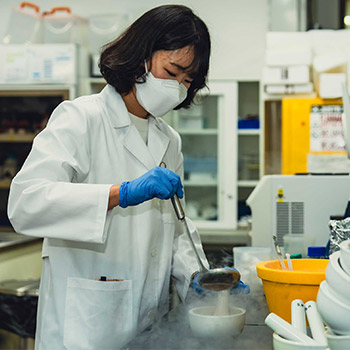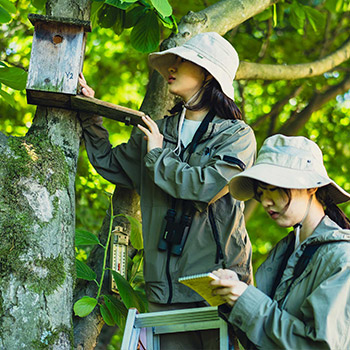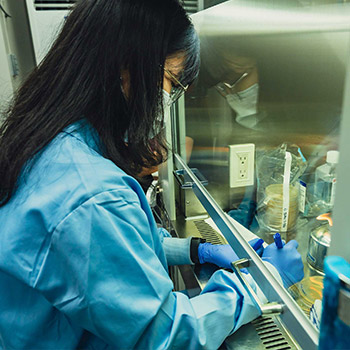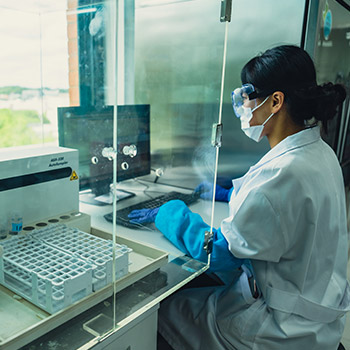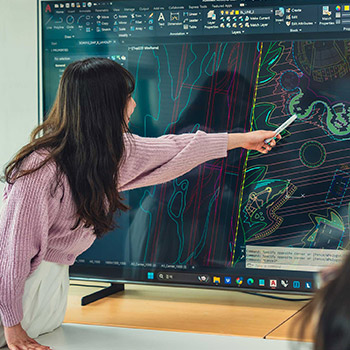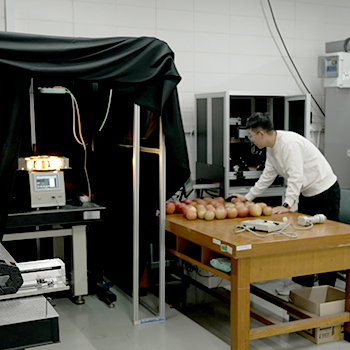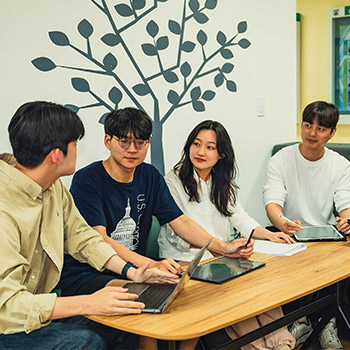Department of Agricultural Biotechnology
☎ +82-2-880-4901
200-6107
Agricultural biotechnology is a cutting-edge science incorporating biotechnology and agricultural science. Genetic engineering, cell and tissue culture technologies of biotechnology are combined with the technologies of agricultural sciences.
Agricultural biotechnology has assumed a critical role of securing food resources both in quantity and in quality utilizing flora and fauna biological resources, developing advanced biomaterials, treating plant and animal disease, and preserving the global environment.
The Department of Agricultural Biotechnology conducts research on biological resources, animals, plants, microbes to meet the needs of humanity by solving food issues, environmental problems and diseases collaboration with the knowledge of biotechnology, strategic industry. The program carries out research on high value-added biomaterials and fostering future leaders in this academic field.
The Department of Agricultural Biotechnology encompasses six programs: Program in Food Science and Biotechnology; Program in Animal Science and Biotechnology; Program in Applied Life Chemistry; Program in Plant Microbiology; Program in Entomology; and Program in Biomodulation. The Department supports professors and graduate students' research activities with the Brain Korea 21 Projects implemented by the Ministry of Education, Science and Technology.
Agricultural biotechnology has assumed a critical role of securing food resources both in quantity and in quality utilizing flora and fauna biological resources, developing advanced biomaterials, treating plant and animal disease, and preserving the global environment.
The Department of Agricultural Biotechnology conducts research on biological resources, animals, plants, microbes to meet the needs of humanity by solving food issues, environmental problems and diseases collaboration with the knowledge of biotechnology, strategic industry. The program carries out research on high value-added biomaterials and fostering future leaders in this academic field.
The Department of Agricultural Biotechnology encompasses six programs: Program in Food Science and Biotechnology; Program in Animal Science and Biotechnology; Program in Applied Life Chemistry; Program in Plant Microbiology; Program in Entomology; and Program in Biomodulation. The Department supports professors and graduate students' research activities with the Brain Korea 21 Projects implemented by the Ministry of Education, Science and Technology.

Programs
Program in Applied Life Chemistry
☎ +82-2-880-4650
+82-2-873-3112
200-7108
The applied life chemistry program (previously the agricultural chemistry program) covers both biotechnology and environmental sciences, which exist on the forefront of scientific research in the 21st century. Life chemistry is an advanced applied science, emphasizing the fundamental scientific principles and theories for the production and regulation of living organisms and their biochemical processes.
The applied life chemistry program can be divided into two disciplines: applied biochemistry and environmental chemistry. Applied biochemistry focuses on biochemistry, molecular biology, plant genomics and nutrition, natural product chemistry, microbial biotechnology, and structural biology. Environmental chemistry focuses on soil chemistry and physics, ecological chemistry, pesticide chemistry and toxicology, and fertilizer science. The applied life chemistry program provides a broad spectrum of education to understand biological phenomena and processes, and ecological environments both as a foundation for agricultural production and as habitats of living organisms. The education provided in this program can be further applied to industries in agriculture and other closely related areas.
The applied life chemistry program can be divided into two disciplines: applied biochemistry and environmental chemistry. Applied biochemistry focuses on biochemistry, molecular biology, plant genomics and nutrition, natural product chemistry, microbial biotechnology, and structural biology. Environmental chemistry focuses on soil chemistry and physics, ecological chemistry, pesticide chemistry and toxicology, and fertilizer science. The applied life chemistry program provides a broad spectrum of education to understand biological phenomena and processes, and ecological environments both as a foundation for agricultural production and as habitats of living organisms. The education provided in this program can be further applied to industries in agriculture and other closely related areas.

Faculty
| Name | Major | TEL | |
|---|---|---|---|
| Professor Minkyun Kim |
Plant Genomics & Nutrition | +82-2-880-4641 | mkkim3@snu.ac.kr |
| Professor Euiyoung Bae |
Biophysical Chemistry | +82-2-880-4648 | bae@snu.ac.kr |
| Professor Chanseok Shin |
Biochemistry | +82-2-880-4643 | cshin@snu.ac.kr |
| Professor Sangkee Rhee |
Structural Biology | +82-2-880-4647 | srheesnu@snu.ac.kr |
| Associate Professor Young Hun Song |
Plant Molecular Biology | +82-2-880-4649 | younghsong@snu.ac.kr |
| Associate Professor Goontaek Lee |
Soil Chemistry | +82-2-880-4645 | gtlee@snu.ac.kr |
| Associate Professor Kwon, Yonghoon |
Organic Chemistry | +82-2-880-4642 | y_kwon@snu.ac.kr |
| Assistant Professor Min, Kyungjin |
Soil Biogeochemistry | +82-2-880-4644 | kjmin@snu.ac.kr |
| Assistant Professor Kyungmin Kim |
Soil Environmental science and Ecology | +82-2-880-4646 | km_kim@snu.ac.kr |

